- Make It Yourself Lavender Heart-Shaped Bath Bombs!
- 20 Things You Never Knew About “Down There”
- 12 Best Foods For Those Suffering From Arthritis Pain
- 12 Personal Hygiene Mistakes Almost Everyone Makes (Mom Never Told You About #4!)
- 15 Medicinal Plants And Herbs From The Cherokee People
- 12 Mind-Blowing Benefits Of Drinking Coconut Water During Pregnancy
- 12 Outstanding Winter Foods That Won’t Fatten You Up Like A Christmas Turkey
12 Natural Ways to Beat Polycystic Ovary Syndrome (PCOS)

Photo credit: bigstock.com
If you or your partner is dealing with polycystic ovary syndrome, then you are already well aware of the problems that this hormonal imbalance can cause.
If you are not aware of it, polycystic ovary syndrome, PCOS, is a fairly common condition that is related to a hormonal imbalance in women, characterized by high levels of male hormones (androgens) in the female body.
Women with PCOS have a difficult time becoming pregnant, have very irregular menstrual cycles, and cysts on the ovaries are also very common.
Symptoms of PCOS are generally infrequent or prolonged periods, weight gain, acne, thinning hair (sometimes even developing male pattern baldness), pelvic pain, and excessive facial and body hair. Although the symptoms differ from woman to woman, it is important that this problem be discovered and treated as early as possible. Women with PCOS are at a much higher risk for hypertension, high levels of cholesterol, heart disease, diabetes, and insulin resistance.
Although there is no cure, it can be controlled, many times through natural remedies and some easy lifestyle changes.
You should always consult your physician for proper diagnosis and discuss with them any herbal remedies or lifestyle changes you would like to make to be certain that you are taking the proper steps for you and your condition.
1. Holy Basil
This ancient herb is also called tulsi, and it can help to reduce the symptoms of this condition due to its anti-androgenic compounds. Tulsi can also aid in both weight loss and insulin levels. Holy basil has long been used as a stress reliever and it has anti-inflammatory and antioxidant compounds that are super healthy for the body, no matter what your condition!
Most people consume holy basil by drinking it as a tea two or three times each day. You can also consume between 8 and 12 leaves each day as an alternative.
This herb is also available in a supplement form. Since holy basil can lower blood glucose levels and slow blood clotting times, you should consult your physician before consuming this herbal supplement, especially if you are diabetic or if you are taking any prescription medications.
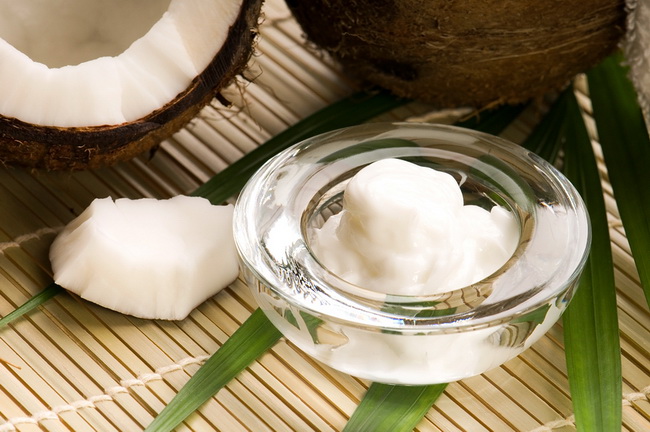
Photo credit: bigstock.com
2. Eat Healthy Fats
Forget that old myth about how eating fat will make you fat. The consumption of natural, healthy fats is vital if your body is to produce the proper amount of hormones. When we talk about healthy fats, we mean the natural kind that Mother Nature intended us to eat, such as:
- Coconut Oil – This medium chain fatty acid is used by the body for energy and not for storing as fat. Make coconut oil your new favorite fat for cooking!
- Butter – Dump the margarine and eat butter made from grass fed cows. If you can’t find that, at least look for organic butter.
- Extra Virgin Olive Oil – This oil is made from the first pressing of olives so it might have a strong flavor, but it is loaded with heart healthy benefits. Use this for salads and dips.
Avoid unhealthy fats such as canola oil, corn oil, cottonseed oil, or soybean oil. Find out the best oils for cooking.

Photo credit: bigstock.com
3. Cinnamon
One study, published in the journal Fertility and Sterility, showed that this spice can help reduce insulin resistance in women with this disorder. Backing up this study is another study from the researchers at Columbia University which showed that consuming cinnamon can improve the menstrual cycle for women suffering from PCOS.
You only need two teaspoons of this spice each day to get the full benefit of it. You can simply mix this spice in some water and drink it, add it to your morning oatmeal or yogurt, try adding some to your coffee for a change of pace, or take a supplement. If you choose a supplement, most people take 1,000 mg capsules three times a day.
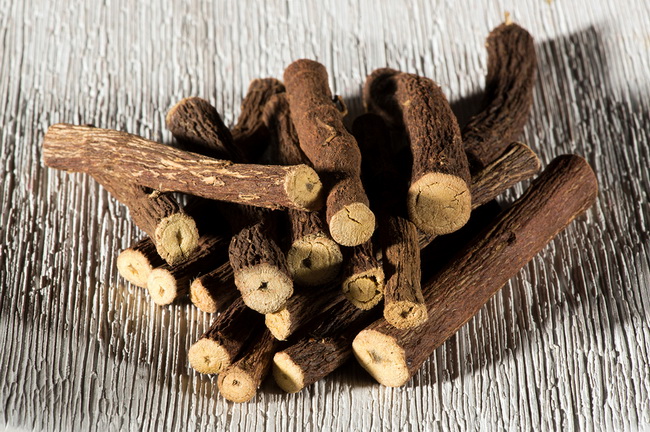
Photo credit: bigstock.com
4. Licorice
Licorice root can help to reduce serum testosterone in women with PCOS, according to research conducted in Italy. It’s believed that the glycyrrhizin in licorice root inhibits the body from producing an enzyme that is necessary for the production of testosterone. Licorice root also encourages ovulation and helps the liver detoxify the body. Since the liver is responsible for removing toxins and excess hormones from the body, this can help to balance your hormone levels.
You can take this herb in a supplement form. Consult your doctor for the proper dosage. Alternately, you can drink this herb as a tea two or three times each day.
This herb is not a good choice for those who have heart, kidney, or liver disease, or if you have hypertension.

Photo credit: bigstock.com
5. Flaxseed
Flaxseeds contain a substance called lignans, which increase the production of a hormone which binds to testosterone in the blood and prevent it from causing the problems associated with PCOS. Since flaxseeds are also high in fiber, they can lower cholesterol levels and the metabolism of glucose. Flaxseeds are also well-known for their high levels of healthy omega-3 fatty acids, which will lower blood pressure, reduce the risk of heart disease or heart attacks, and greatly reduce inflammation.
Flaxseeds work best when they have been ground up a bit. You can do this by adding some flaxseeds to your blender or coffee grinder and give them a few turns. Then mix a tablespoon into some water, juice, yogurt, or smoothie twice each day.

Photo credit: bigstock.com
6. Be Aware of Your Liver
As we mentioned before, your liver is responsible for removing both toxins and old hormones out of the body. When your liver is overworked due to an overload of toxins, processed foods, sugar, alcohol, and caffeine, it can’t do a good job, which can keep your hormones out of whack. Be sure you eat plenty of liver friendly foods such as garlic, beets, lemons, and milk thistle, which is a well-known herb for supporting healthy liver function.
Eat a more natural, healthy diet with plenty of fresh, organic vegetables, seeds, nuts, fruits, and healthy fats. Avoid alcohol, sugary drinks, and excessive amounts of caffeine.

Photo credit: bigstock.com
7. Spearmint Tea
Not peppermint or mint tea, but spearmint tea. Spearmint tea has anti-androgenic compounds. One study found that drinking spearmint tea reduces excess body hair by reducing total testosterone levels and increasing follicle stimulating hormone levels. This study was published in the journal Phytotherapy Research.
You can buy premade tea bags or add one teaspoon of spearmint leaves to a cup of boiling water and steep for 10 minutes. Strain, add a bit of raw, organic honey, and drink two cups each day.
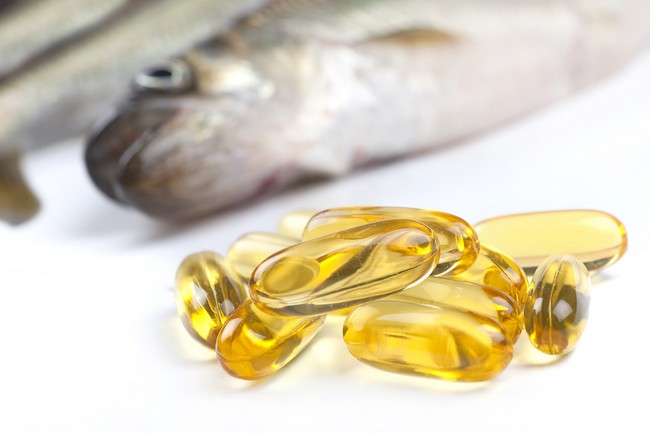
Photo credit: bigstock.com
8. Fish Oil
The omega-3 fatty acids in fish oil can help reduce androgen as well as improve insulin sensitivity. The American Journal of Clinical Nutrition published a study which showed the omega-3 fatty acids helped to improve the symptoms of those with PCOS by balancing androgen levels in the body.
Fish oil supplements also lower inflammation, fight chronic diseases, and help to reduce body fat. Since there is no set standard dosage for fish oil supplements, consult your physician for the correct amount you should take for your condition.
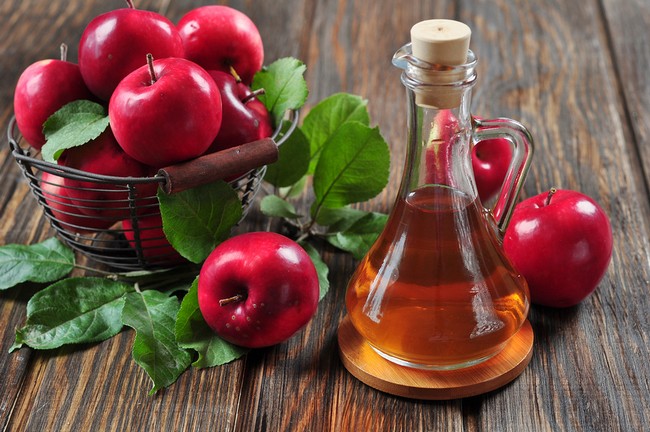
Photo credit: bigstock.com
9. Apple Cider Vinegar
This natural remedy can help with some of the symptoms of PCOS, such as the control of blood sugar levels as well as keeping your body from producing too much insulin; less insulin means less testosterone. Consuming apple cider vinegar daily can also help you to manage your weight. Most people have a hard time swallowing apple cider vinegar, however.
To make it more palatable, start with smaller amounts, such as one teaspoon, and mix it in some juice or a smoothie. Gradually work yourself up to two tablespoons per glass, two or three times each day.
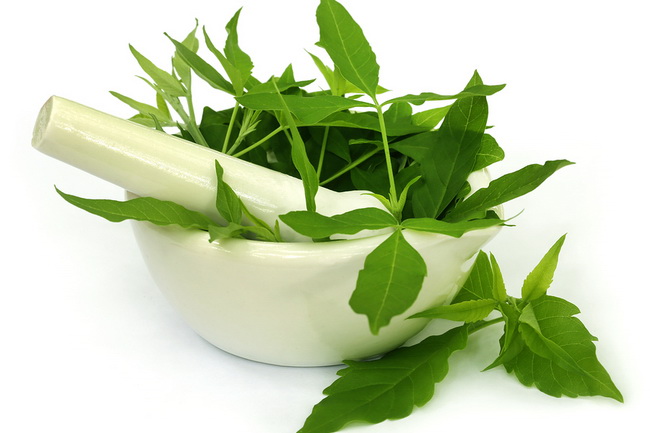
Photo credit: bigstock.com
10. Chasteberry
Sometimes called vitex, chasteberry is a very popular herb among naturopaths for relieving the symptoms of PCO. This herb is terrific for balancing hormones and has been used for untold ages for all types of menstrual problems.
You can add one teaspoon of fresh or dried chasteberries to one cup of boiling water, allow to steep for 10 or 15 minutes, then strain and drink. This herb is also available in a supplement form. Talk to your doctor about the proper dose for your situation.
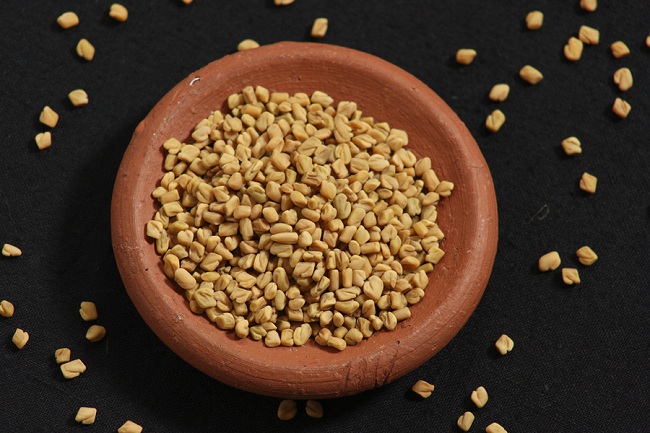
Photo credit: bigstock.com
11. Fenugreek
By encouraging proper glucose metabolism in the body, fenugreek improves insulin resistance. This will help your body to naturally balance its hormones. Fenugreek seeds can also help you to lose weight, lower cholesterol, and encourage normal heart function.
SEE ALSO: Reduce Your Risk of Ovarian Cysts With These Food Options Infographic
To use this herb, soak three teaspoons of fenugreek seeds in some water overnight. Take one teaspoon of the soaked seeds and mix it with some honey. Eat this mixture three times each day, usually before meals, until you see improvement in your condition.

Photo credit: bigstock.com
12. Saw Palmetto
Many naturopaths recommend this herb for the treatment of PCOS as it helps to correct hormonal imbalance. Saw palmetto is an anti-androgen. It works by reducing the conversion of testosterone into a more active form. This can help to stop excessive hair growth in women, as well as helping those with thinning hair grow it back.
You can take one teaspoon of a liquid extract of saw palmetto once each day, or take a 320 mg supplement each day.
Extra Tips:
- Try to keep your weight within a reasonable range as excess weight will increase your levels of male hormones in the body.
- Avoid using plastic containers and anti-bacterial soaps as these contain hormone disrupting chemicals.
- Take a B-vitamin complex supplement as B vitamins have been shown to be helpful in fighting PCOS symptoms.
References:
































